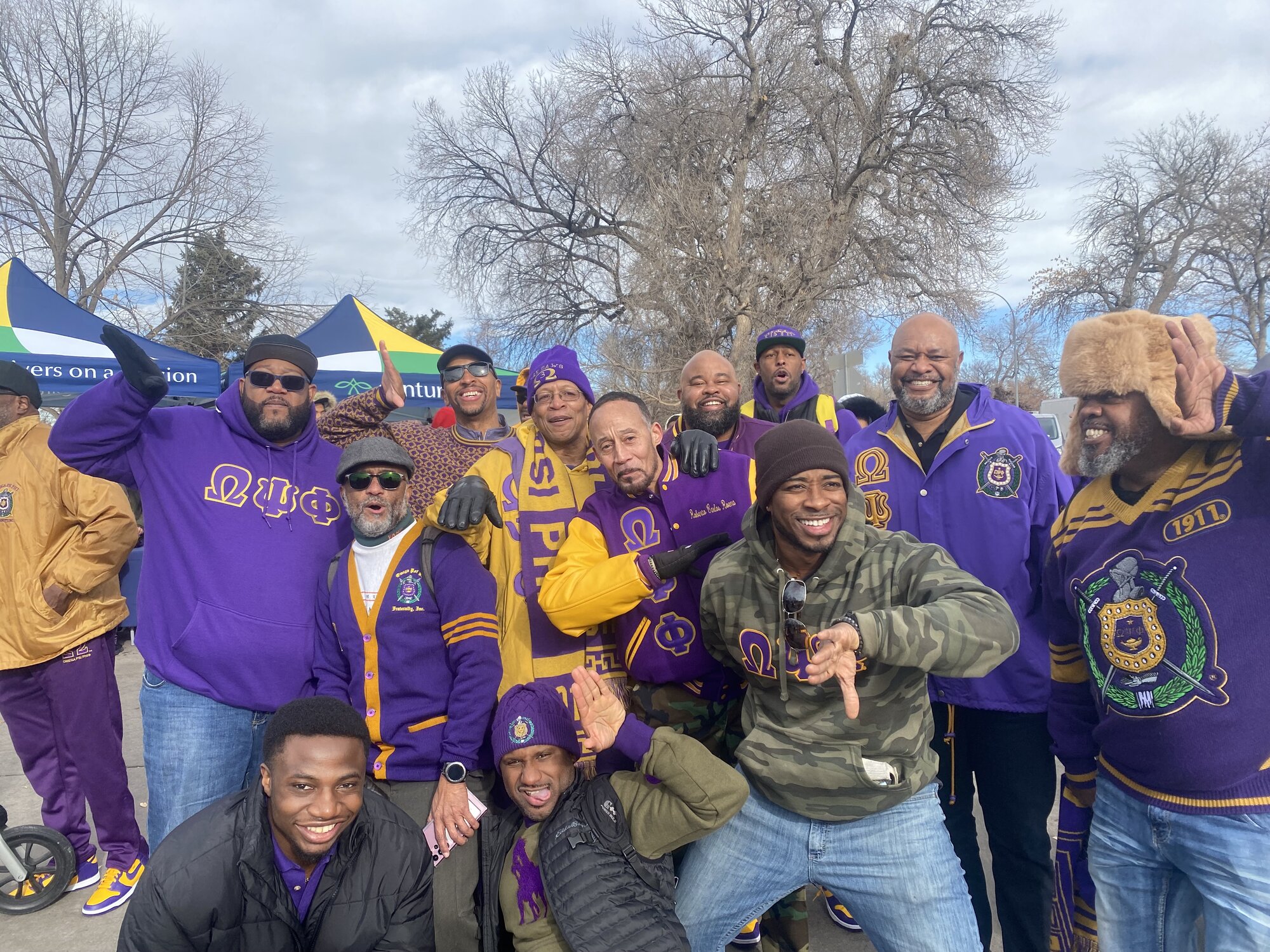Denver celebrates 38th annual Martin Luther King Jr. Day Marade

DENVER — Lammont Shannon has attended every Martin Luther King Jr. Day “Marade,” in Denver since its birth 38 years ago. When the Marade went virtual in 2020 due to the COVID-19 pandemic, Shannon marched by himself from City Park to Civic Center Park, pondering King’s legacy and how to carry it on through the pandemic and into the future.
“Our ancestors gave so much so we could have what we do today, and there’s no way we should ever not show up to this,” Shannon said. “It’s remembering what the struggle is, day in and day out.”
The Marade — a combination of march and parade — began in 1984, with a goal of celebrating King’s legacy and the progress the world has made since his assassination, while also recognizing the work still needing to be done.
[Related: On King’s holiday, daughter calls for bold action over words]
“There’s always progress to be made. There’s always a fight and a struggle,” said Christian Steward, co-chair of the Martin Luth King Jr. Holiday Marade, the event’s official title. “We’re always going to fight for justice.”
Shannon is a member of the Omega Psi Phi fraternity, a historically Black fraternity founded at Howard University. Several of the fraternity’s alumni live in Denver and attend the march every year, sporting its letters and honoring its values.

“It’s about those tenants of inclusivity and those tenants of tolerance that you’re different from me, I have a different background from you, but we’re both valued,” said Noel Williams, another Omega Psi Phi alumnus and Denver resident. “There’s a very low percentage of African Americans in the state of Colorado, so it’s challenging sometimes to find commonalities.”
Marade attendees begin the event outside the Martin Luther King Jr. statue at City Park with speeches from activists and performances from Black groups and organizations in the state. Attendees then march down Colfax Avenue to Civic Center Park, which rests between the Colorado State Capitol and Denver City Hall.
The walk is just over two miles. Held in January, marchers typically endure cold weather and icy sidewalks but say they can’t imagine spending King’s birthday doing anything else.
“I am here today because I love celebrating the life of Martin Luther King and what he stood for, and making sure we keep that message out in front, not only individually, but for the collective of our community,” said Tiffany Gardner, a local activist. “We’ve seen recently that the movement has not progressed as much as we want, and it’s important for our community to continue to live out his legacy because we’re better together.”
Gardner grew up in Denver’s Park Hill neighborhood and said she has witnessed Denver’s already-small Black community shrink throughout her life. While the state feels more diverse in a literal sense, Gardner said Black-owned businesses have been forced to close and Black families have been priced out of longtime Black neighborhoods due to inflation and gentrification.
“Thinking about Five Points and the shift there, we need those key things of keeping the Black community small businesses in Denver,” Gardner said. “We need to elevate that and put that in the forefront so we keep elevating our community.”
Several Black attendees said bringing younger generations to the Marade was particularly important, both to remind them of previous struggles for freedom, as well as encourage them to continue the fight forward.
“I’m just here serving as a bridge from the last generation who has trailblazed to the next generation who will have to take on the torch,” said Quincy Shannon, dean of students at the Denver School of Science and Technology in the Green Valley Ranch neighborhood.
Quincy Shannon brings students of color from his school to the Marade each year and said teaching students of color in a system that often fails them is an overwhelming challenge.
“It’s extremely difficult, it’s always a battlefield on which we’re trying to make it through,” Quincy Shannon said. “It’s oppression from every lens. It’s fighting for your kids to get a decent education while realizing that you’re not going to be paid more than a janitor.”
John and Rochelle Naylor — two Black parents from Denver who brought their three sons to the Marade — echoed a similar sentiment of ensuring King’s message of liberation lives on.
“His name has resonated in so many places,” John Naylor said. “His life, his legacy will continue.”
Alison Berg is a multimedia journalist at Rocky Mountain PBS. You can reach her at alisonberg@rmpbs.org.